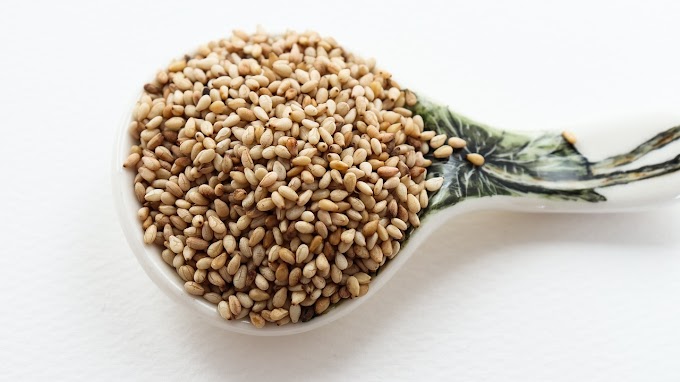Diet in Ayurveda: Ancient Wisdom for Optimal Health
Introduction
"Ayurveda: Discovering Ancient Wisdom for Optimal Well-being through Calorie Counting" invites you to explore the ancient system's personalized approach to diet, incorporating superfoods and herbs, and promoting mindful eating for improved digestion.In the current fast-paced era, wellness and holistic health have become paramount for individuals striving for a balanced lifestyle. Ayurveda, the ancient Indian system of medicine, offers profound insights into achieving overall well-being through diet, lifestyle, and herbal remedies. At the heart of Ayurvedic philosophy lies the belief that a well-balanced calorie count is instrumental in maintaining harmony between the mind, body, and soul. Let's delve into the wisdom of Ayurvedic nutrition and its time-tested methodology for calorie counting, fostering a healthier and more fulfilling life.

Ayurveda and Diet
Ayurveda, meaning the "Science of Life," is an ancient medical system that dates back thousands of years. It emphasizes the interconnectedness of humans with nature and recognizes that each person is unique, with their distinct constitution and health requirements. Ayurveda categorizes individuals into three primary doshas: Vata, Pitta, and Kapha, each representing a combination of the five elements (earth, water, fire, air, and ether). Understanding one's dosha is crucial to tailor the diet appropriately for optimal well-being.Diet in Ayurveda
Ayurveda believes that the root cause of many ailments lies in impaired digestion. The digestive fire, known as "Agni," plays a pivotal role in breaking down and absorbing nutrients from the food we consume. Ayurvedic dietetics emphasize incorporating all six tastes (Rasas) - sweet, sour, salty, bitter, pungent, and astringent - in every meal to ensure balance and satisfaction.Diet According to Your Dosha
Each dosha has specific characteristics and inclinations that influence how they interact with the environment and process food. For example, Vata types tend to be cold, light, and easily unsettled, benefiting from warming and grounding foods. On the other hand, Pitta types are fiery and benefit from cooling and calming foods, while Kapha types are earthy and benefit from light and invigorating foods.Ayurvedic Foods and Herbs
Ayurveda offers a treasure trove of superfoods and herbs that promote well-being and vitality. Turmeric, with its potent anti-inflammatory properties, is highly revered in Ayurveda. Ashwagandha, an adaptogenic herb, helps the body adapt to stress and promotes relaxation. Triphala, a blend of three fruits, aids in digestion and detoxification.Food Combining
In Ayurveda, how we eat is as important as what we eat. Mindful eating practices, such as consuming meals in a peaceful environment and thoroughly chewing food, enhance digestion. Additionally, Ayurveda advises against incompatible food combinations, as they can hinder proper digestion and lead to the formation of toxins (ama).Ayurvedic Fasting and Cleansing Practices
Intermittent fasting and cleansing rituals are integral to Ayurvedic principles. Fasting allows the digestive system to rest and rejuvenate, while cleansing practices, such as Panchakarma, aid in eliminating accumulated toxins from the body.Seasonal Eating in Ayurveda
Ayurveda advocates for adjusting our diet according to the seasons to preserve and harmonize with nature. Eating seasonal foods supports our bodies' natural needs and helps us stay in balance with the environment.Ayurvedic Drinks and Beverages
Herbal teas infused with various medicinal herbs offer diverse health benefits and are a staple in Ayurvedic nutrition. Golden Milk, a soothing beverage made with turmeric and milk, is cherished for its immunity-boosting and anti-inflammatory properties.Ayurveda and Digestive Health
Ayurveda addresses common digestive issues such as indigestion, bloating, and acidity. It recommends incorporating spices like ginger and cumin into the diet to improve gastrointestinal function.Weight Management
Ayurveda takes a holistic approach to weight management, focusing on balancing the doshas and adopting healthy lifestyle practices. Ayurvedic weight loss tips include incorporating bitter and astringent foods, while weight gain tips involve nourishing the body with nutrient-dense foods.Ayurveda for Health Conditions
Ayurveda offers specialized dietary and lifestyle recommendations for various health conditions. For instance, specific herbs and oils can be used to promote radiant skin, while stress and anxiety can be alleviated through meditation and calming herbs.Ayurvedic Practices in Your Lifestyle
Embracing Ayurvedic practices into daily living can significantly improve overall well-being. Establishing a consistent daily routine (Dinacharya) and adopting healthy sleep practices (Ratricharya) are crucial aspects of the Ayurvedic lifestyle.The pursuit of well-being and holistic wellness has become a central focus for individuals seeking a balanced and fulfilling lifestyle. Ayurveda, an ancient Indian system of medicine, offers profound insights into achieving overall well-being through dietary adjustments, lifestyle modifications, and herbal remedies. Central to Ayurvedic philosophy is the belief that a well-calibrated calorie intake plays a pivotal role in maintaining harmony between mind, body, and spirit. Let us embark on a journey to explore the wisdom of Ayurvedic nutrition and its time-honored methodology for calorie counting, enabling us to lead healthier and more harmonious lives.
Diet in Ayurveda
Ayurveda, which translates to the "Science of Life," is an ancient medical system that traces its roots back thousands of years. It underscores the interconnectedness between human beings and nature, acknowledging the uniqueness of each individual's constitution and health requirements. Ayurveda classifies people into three primary doshas: Vata, Pitta, and Kapha, representing a blend of the five elements (earth, water, fire, air, and ether). Understanding one's dosha is vital in tailoring the diet to promote optimal well-being.
Ayurveda's Approach to Diet
Ayurveda identifies impaired digestion as the root cause of numerous ailments. The digestive fire, or "Agni," assumes a central role in breaking down and assimilating nutrients from the food we consume. Ayurvedic dietetics emphasize the incorporation of all six tastes (Rasas) - sweet, sour, salty, bitter, pungent, and astringent - in each meal to ensure balance and satiety.Diet According to Your Dosha
Each dosha manifests specific characteristics and inclinations that influence how individuals interact with their surroundings and process food. For instance, Vata types tend to be cold, light, and easily unsettled, benefitting from warming and grounding foods. Conversely, Pitta types exude fiery characteristics and benefit from cooling and calming foods, while Kapha types embody earthiness and thrive on light and invigorating foods.Ayurvedic Superfoods and Herbs
Ayurveda boasts an array of superfoods and herbs that promote well-being and vitality. Turmeric, renowned for its potent anti-inflammatory properties, occupies a revered place in Ayurveda. Ashwagandha, an adaptogenic herb, aids the body in coping with stress and promoting relaxation. Triphala, a fusion of three fruits, aids in digestion and detoxification.Etiquette and Harmonious Food Pairing
According to Ayurveda, how we eat is as significant as what we eat. Mindful eating practices, such as consuming meals in a serene environment and thoroughly masticating food, enhance digestion. Additionally, Ayurveda advises against incompatible food combinations, as they can impede proper digestion and lead to the formation of toxins (ama).Ayurvedic Fasting and Cleansing Rituals
Intermittent fasting and cleansing rituals hold integral positions within Ayurvedic principles. Fasting allows the digestive system to rest and rejuvenate, while cleansing practices, including Panchakarma, aid in the elimination of accumulated toxins from the body.Seasonal Eating in Ayurveda
Ayurveda advocates for the alignment of our diet with the seasons to preserve equilibrium and foster a symbiotic relationship with nature. Consuming seasonal foods supports the body's natural requirements and facilitates adaptation to the environment.Nourishing Beverages
Herbal teas infused with a diverse range of medicinal herbs offer numerous health benefits and constitute a cornerstone of Ayurvedic nutrition. Golden Milk, a soothing elixir crafted with turmeric and milk, is cherished for its immune-boosting and anti-inflammatory properties.Digestive Health
Ayurveda addresses common digestive concerns such as indigestion, bloating, and acidity. It advocates for the inclusion of spices like ginger and cumin in the diet to enhance gastrointestinal function.Ayurveda into Weight Management
Ayurveda adopts a holistic approach to weight management, focusing on balancing the doshas and embracing healthy lifestyle practices. Ayurvedic strategies for weight loss encompass the integration of bitter and astringent foods, while weight gain recommendations entail nurturing the body with nutrient-dense foods.Ayurveda's Offerings for Specific Health Conditions
Ayurveda presents tailored dietary and lifestyle recommendations for various health conditions. For example, specific herbs and oils can be harnessed to promote radiant skin, while stress and anxiety can be alleviated through meditation and calming herbal supplements.Ayurvedic Practices in Your Daily Routine
Integrating Ayurvedic practices into your daily routine can yield significant enhancements in overall well-being. Establishing a consistent daily regimen (Dinacharya) and cultivating healthy sleep habits (Ratricharya) constitute essential aspects of the Ayurvedic lifestyle.Ayurveda and Contemporary Nutrition
Ayurveda seamlessly integrates with modern nutritional principles, emphasizing the consumption of whole, organic foods that nourish the body and foster robust health.Vata Dosha:
Characteristics:Elements: Air and Ether.Qualities: Cold, dry, light, subtle, mobile.
Physical Traits: Thin build, dry skin, variable appetite, irregular digestion.
Mental Traits: Creative, energetic, enthusiastic, and prone to anxiety.
Balancing Diet for Vata:
Foods to Embrace: Warm and nourishing foods such as soups, stews, and cooked grains.Sweet, sour, and salty tastes to balance Vata's cold and dry qualities.
Healthy fats like ghee, olive oil, and sesame oil for lubrication.
Foods to Limit: Cold, raw, and excessively spicy foods.
Dry and light foods, like crackers and popcorn.
Caffeine, as it can increase Vata's erratic energy.
Hydration: Warm liquids, herbal teas, and warm water to counteract dryness.
Meal Routines: Regular, structured meal times to provide stability.
Pitta Dosha:
Characteristics:Elements: Fire and Water.Qualities: Hot, sharp, light, oily, intense.
Physical Traits: Medium build, fair or ruddy complexion, strong digestion.
Mental Traits: Goal-oriented, organized, can be irritable when imbalanced.
Balancing Diet for Pitta:
Foods to Embrace: Cooling foods such as cucumber, melons, and mint.Bitter, astringent, and sweet tastes to counteract Pitta's heat.
Moderate amounts of healthy oils like coconut and sunflower.
Foods to Limit: Spicy, oily, and acidic foods that can exacerbate Pitta's intensity.
Excessive salt and sour foods.
Hydration: Cool drinks and room temperature water to balance heat.
Meal Routines: Regular but not overly large meals, avoiding skipping meals.
Kapha Dosha:
Characteristics:Elements: Earth and Water.Qualities: Heavy, cold, oily, stable, slow.
Physical Traits: Solid build, soft skin, strong and steady digestion.
Mental Traits: Calm, nurturing, can be lethargic when imbalanced.
Balancing Diet for Kapha:
Foods to Embrace: Light and easily digestible foods like steamed vegetables and legumes.Astringent, bitter, and pungent tastes to counteract Kapha's heaviness.
Spices like ginger, black pepper, and turmeric for stimulation.
Foods to Limit: Heavy and oily foods, such as fried items and excessive sweets.
Dairy, as it can contribute to excess mucus.
Hydration: Warm liquids and herbal teas to counteract Kapha's cold nature.
Meal Routines: Light and smaller meals, avoiding overeating.
General Tips for All Doshas:
Mindful Eating: Eat in a calm environment, paying attention to flavors and textures.
Avoid distractions like TV or work during meals.
Seasonal Adjustments: Adapt your diet to seasonal changes to maintain balance.
Herbs and Spices: Incorporate Ayurvedic herbs and spices for additional health benefits.
Hydration: Sip warm water throughout the day to support digestion.
Conclusion:
Incorporating Ayurvedic principles into our dietary choices and lifestyle habits can pave the way for significant improvements in our physical, mental, and emotional well-being. By discerning our unique constitution and adhering to the tenets of Ayurvedic nutrition, we embark on a journey toward vitality and balance. Let Ayurveda illuminate our path as we embrace the ancient wisdom of this time-honored system for a harmonious and fulfilling life.FAQ's
Is Ayurveda suitable for everyone?Ayurveda's personalized approach to well-being renders it suitable for individuals of all ages and backgrounds. However, seeking guidance from an Ayurvedic practitioner is advised for personalized recommendations.
Can Ayurveda aid in weight loss?
Can Ayurveda aid in weight loss?
Indeed, Ayurveda presents effective and sustainable weight loss strategies by focusing on an individual's dosha and advocating for a balanced diet and lifestyle.
Are Ayurvedic herbs safe for daily consumption?
Are Ayurvedic herbs safe for daily consumption?
When used appropriately, most Ayurvedic herbs are safe for regular consumption. Nonetheless, consulting an Ayurvedic expert to determine the appropriate dosage and duration is recommended.
Can Ayurveda enhance skin health?
Can Ayurveda enhance skin health?
Ayurveda offers an array of herbs and treatments that can promote healthy and radiant skin when integrated into a balanced lifestyle.
Are there any adverse effects of Ayurvedic practices?
Are there any adverse effects of Ayurvedic practices?
When practiced under the guidance of a qualified practitioner, Ayurvedic practices are generally safe and entail minimal side effects.
Note: Before making significant alterations to your lifestyle or healthcare regimen, it is advisable to consult a certified Ayurvedic practitioner to receive personalized guidance tailored to your specific needs.
Note: Before making significant alterations to your lifestyle or healthcare regimen, it is advisable to consult a certified Ayurvedic practitioner to receive personalized guidance tailored to your specific needs.







